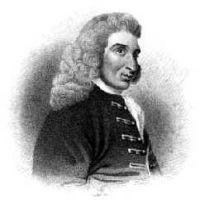Miscellanies by Henry Fielding, Esq: Volume Three
Volume Three of Henry Fielding's Miscellanies, first published as a three-volume set in 1743, consists in its entirety of a major work of fiction, The history of the Life of the Late Mr. Jonathan Wild the Great. Jonathan Wild takes its title from the `thief-taker' and gang-leader of that name who was hanged in 1725, but in Fielding's hands, the history of Wild is transformed into a mock-hostorical work of sustained irony aimed at all who would be `great men'. The general introduction to this edition sets the novel against its historical and biographical background and argues against the view, common since the mid-nineteenth century, that it is a personal satire directed at the figure of Sir Robert Walpole. In both the general and the textual introductions, the editors also offer a fresh view on questions about the date and history of the work's composition. Full explanatory notes and commentary place Fielding's allusions and details in their contemporary context. As in previous volumes of the Weslyan Edition, this provides critical, unmodernized text, based on the Greg-Bowers `Rationale of Copy-text'. The version is that of the first edition, with an appendix giving all variants in wording and presentation in the 1754 revision. In his introduction the textual editor lays out the rationale for his choice of version. This volume also includes, for the first time in modern edition, Fielding's list of subscribers to the Miscellanies, along with detailed biographical notes and an analysis of the subscription list by the textual editor.
-
Autore:
-
Curatore:
-
Editore:
-
Collana:The Wesleyan Edition of the Works of Henry Fielding
-
Anno:1997
-
Rilegatura:Hardback
Le schede prodotto sono aggiornate in conformità al Regolamento UE 988/2023. Laddove ci fossero taluni dati non disponibili per ragioni indipendenti da Feltrinelli, vi informiamo che stiamo compiendo ogni ragionevole sforzo per inserirli. Vi invitiamo a controllare periodicamente il sito www.lafeltrinelli.it per eventuali novità e aggiornamenti.
Per le vendite di prodotti da terze parti, ciascun venditore si assume la piena e diretta responsabilità per la commercializzazione del prodotto e per la sua conformità al Regolamento UE 988/2023, nonché alle normative nazionali ed europee vigenti.
Per informazioni sulla sicurezza dei prodotti, contattare productsafety@feltrinelli.it




